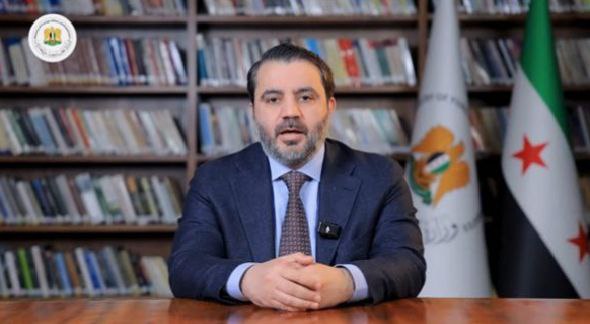Mr. President of the Human Rights Council,
Mr. High Commissioner for Human Rights,
Your Excellencies, Heads of Delegations, Honorable Attendees,
I extend my sincere greetings to you all.
For more than five decades, the Syrian people suffered under a brutal, tyrannical regime that subjected them to all forms of repression, torture, and violations of their basic human, political, and civil rights.
Over the past 14 years, the Assad regime used barrel bombs, chemical weapons, arbitrary detention, and incendiary weapons against civilians. Syrian prisons, led by the infamous Sednaya Prison, were turned into slaughterhouses for collective torture and mass killings. Survivors have shared horrific accounts of beatings, electric shocks, sexual violence, starvation, and psychological torture.
Meanwhile, forcibly displaced families endured unbearable agony, scattered across exile, unaware if their loved ones were even alive.
Today, we stand at the threshold of a new phase, a phase where the will of the Syrian people has triumphed, and humanity’s light is finally returning to Syria.
Excellencies,
We sincerely thank you for your constant commitment to keeping Syria’s suffering present in your sessions and decisions over the past years — and today.
We affirm our unwavering commitment to achieving freedom and dignity for the Syrian people. With full determination and resolve, we face today numerous and complex challenges at the humanitarian, political, service, and social levels.
The Assad regime left us with deep wounds and a heavy legacy. There are three groups we must not forget — we owe them their rights today, and we must work together to guarantee and fulfill them:
First: The rights of those who were killed — the victims of Assad’s crimes. Achieving transitional justice for the crimes committed in Syria over the past decade and a half is essential. These crimes have been well-documented by this very Council. This is not a matter of political bargaining — it is a fundamental commitment we must uphold to ensure accountability and to combat impunity.
We have already taken concrete steps in this regard, including at the international level. In the past few weeks, after Syria’s liberation, the new Syrian government allowed the United Nations Commission of Inquiry (created by this Council) to enter Syria — something the previous regime had blocked.
We also welcomed the Organization for the Prohibition of Chemical Weapons on a historic visit to Syria, where we agreed on a roadmap for cooperation. Furthermore, the International, Impartial, and Independent Mechanism (created by the UN General Assembly) was allowed to enter Syria for the first time since its creation. We are committed to working with this mechanism to the best of our abilities to achieve transitional justice worthy of our people.
Second: The rights of the missing and forcibly disappeared.
The disappearance of loved ones — with no answers about their fate — has inflicted indescribable torment on families.
We recently met with families who have lost loved ones in Assad’s prisons — they carry unimaginable pain. This tragic experience has touched nearly every Syrian family.
We are now establishing a special commission dedicated to addressing the issue of the missing and forcibly disappeared.
Third: The rights of the living.
As we move forward into the future, we bear the clear responsibility to guarantee that the atrocities and violations committed by the Assad regime are never repeated.
The Syrian people deserve a homeland where their rights are protected, their voices heard, and their dignity preserved.
Ladies and gentlemen,
For 14 years, the international community has failed to stop the bleeding of the Syrian people or to alleviate their suffering.
The time has come for you to stand with us and support our struggle for justice, dignity, and the rights of our people.
In this context, I must say — frankly and without ambiguity — it is no longer acceptable for sanctions to remain an obstacle to rebuilding Syria and its future.
These sanctions were legally justified based on Assad’s crimes and repression, but now that the regime has fallen, there is no longer any justification for their continuation.
These sanctions hinder humanitarian aid, worsen the economic crisis, fuel crime, destabilize security, and block the return of refugees.
The international community now has a historic opportunity to restore the trust of the Syrian people. This is a time-limited opportunity, and I hope you will seize it swiftly.
In conclusion, I thank you for your attention and look forward to your unwavering support in building a free Syria, rising from the rubble of a brutal war and prolonged oppression under one of the most authoritarian regimes in modern history.

